5 Things Families May Not Know about SLPs and AAC Assessment
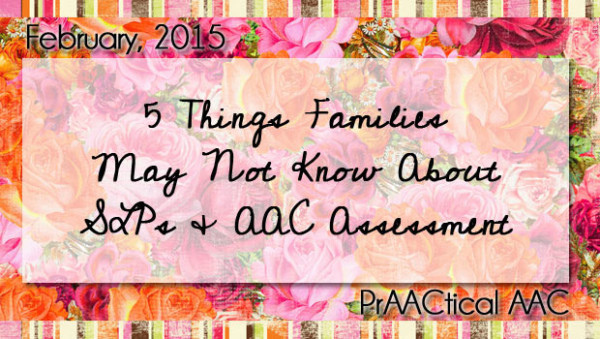
A truth: People with significant communication difficulties need and deserve high-quality AAC assessments by experienced professionals.
Some other truths:
- We want to do a good job. It feels a lot better to go home at the end of the day when we feel like we’ve really, REALLY helped your loved one. For us, there isn’t much that tops that feeling.
- We may have had little or no training in this. Most SLPs in practice today didn’t have any coursework in this area when they were in their graduate programs. Even if they did, they had little to no mentorship in applying the information to real clients in a real world setting. And even those who did get some clinical experience in AAC might not have worked with people similiar to your family member.
- Any learning we do about this is usually on our own time and at our own expense. People who talk about “leaving work at work” don’t live in our universe. We frequently take personal time and vacation days to learn more about how to serve your family member well. And we often fund those experiences with our ‘wouldn’t-it-be-nice-to-join-my-friends-for-a-spa-day’ or ‘jeez-I-need-to-replace-that-worn-out-briefcase’ monies.
- Much of the time we spend preparing customized materials for your family member, writing the report, and advocating with the funding agency is not time we get paid for. Wonder why more SLPs don’t do comprehensive AAC evals? A quick look at reimbursement practices is a good starting point. They only fund a fraction of what we really do for your family member.
- This is scary for us. We’re often between a rock and a hard place. Our employers may want us just to quietly “get it done” and may not much care about quality. Trying to do a good job sometimes puts us at risk. There may be institutional pressures to avoid recommendations that put the agency in a financial bind. When we advocate for the learner, we’re often seen as high maintenance, trouble makers, or people who can’t be trusted to toe the party line.
A truth: People with significant communication difficulties need and deserve high-quality AAC assessments by experienced professionals.
Another truth: This is hard for us. We’re trying to be better. It may not always look that way, but we want to do a great job in assessing your loved one for AAC. We really do.
Filed under: PrAACtical Thinking
Tagged With: assessment
This post was written by Carole Zangari

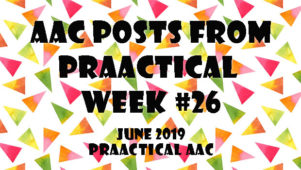
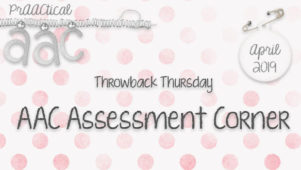
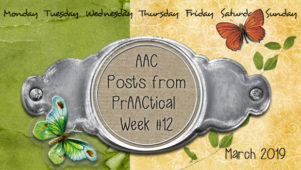
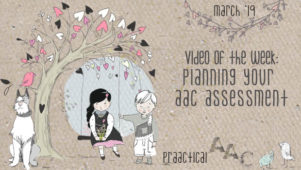
8 Comments
So true! This was how our county operated (I think), each SLP quietly struggling to do our best with little support for this very time-intensive process. Then 2 years ago we created an AAC Specialist position and its provided not only focused, in depth support to our students with CCN, but relief to the local SLPs. Most of our schools have one SLP working alone (or covering multiple buildings) and it can feel isolating to not have colleagues nearby. Having a specialist come alongside the local SLP is really a win-win for all parties!
Thanks for sharing! Sometimes we forget that parents don’t know the full story from the SLP angle.
Rachael
Rachael, I love hearing about how different regions respond to this challenge and find ways to better support AAC learners. We still have so many concerns to address, but positions like the one you mentioned are a big step in the right direction. Thanks for sharing that.
Amen. Thank you for this one. I would add: We think about your family member well after our work day is done. We think “am I doing enough?”, and “what can I do better?”, as we try to go to sleep or as we drink our first cup of coffee in the morning.
Absolutely, Jennifer! This is a calling for many of us, but even those who are not fully immersed in it are often preoccupied with doing a better job w/ AAC evals. We are all in this together and have to support one another to bring up the basic level of AAC services available to the people who need them. Thanks for making time to add your thoughts!
That was my first thought when I read this, too. AMEN!
I agree with your additional point, too. My AAC kids keep me awake at night sometimes.
As a parent of an AAC user, I want to applaud all the SLP’s that put in the extra hard work and effort for their students/clients. I know, I would surely appreciate that type of support. I am in a school district that has an Assistive Tech person with no speech background to oversee and help the SLP’s that are supporting our children. The SLP working with my daughter admitted not knowing the language used on my daughter’s device and not having any aditional training. Very frustrusted with what our community has to offer but happy to know that all SLP’s do not fall into the same category.
I would add that while of course what we do is vital, in the end family members are the most critical component of the child’s success with AAC. While hopefully the slp is devoted enough to volunteer time and money to providing the very best services the fact is most do not. They typically have diverse caseloads to address not to mention outside commitments. The family that takes the time to learn the device, learn strategies to facilitate language, and use the device with the child consistently at home will by far have the greatest impact for the child’s welfare.
Thank you for your honesty! As a parent I am so relieved when someone admits they don’t have all the answers for my family. Then we can pair my knowledge of my child with your communications expertise and really get somewhere great!!!